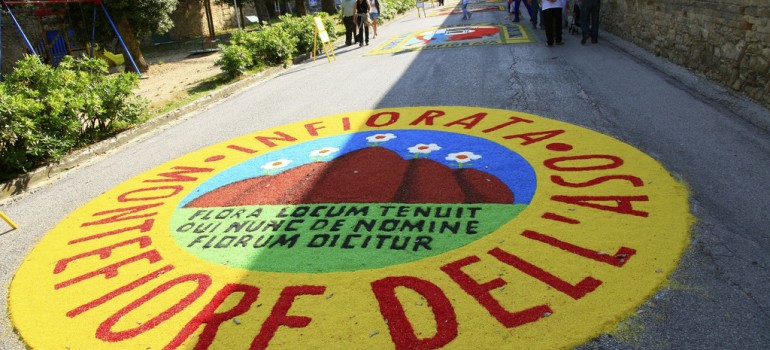
The Sunday after the Feast of SS. Trinity is the feast of the Body and Blood of the Lord. Before the liturgical reform was known as the Feast of Corpus Christi (distinct from the feast of the Blood of Christ celebrated in July) The feast of Corpus Christi has its origins in the fervent atmosphere of Gallia belgica – that St. Francis called friend Corporis Domini – and especially thanks the revelations of the Blessed Julian of retinas. In 1208 the Blessed Juliana, prioress of the Monastery of Monte Cornelius at Liege, saw an ecstasy during the lunar disk of glowing white light, however deformed on one side by a line remained in the shadows, as God intended that vision meant the Church of its time that still lacked a feast in honor of SS. Sacramento. The spiritual director of Blessed, Canon of Liege John of Lausanne, obtained the favorable opinion of many theologians about the above vision, the bishop presented the request to enter the diocese a feast of Corpus Christi. The request was granted in 1246 and the date was set on Thursday after the octave of the Trinity. Later, in 1262 became Pope, under the name of Urban IV, the former Archdeacon of Liege and confidant of Blessed Giuliana, James Pantaleon, who – it seems thanks to the miracle of Bolsena (1264) – with a Bull dated 11 August 1264 extended the feast to the whole Church. Following the popularity of the festival grew thanks to the Council of Trent, spread Eucharistic processions and the cult of the Blessed Sacrament outside of Mass. This gave rise to some abuses that forced the bishops in the fifteenth and sixteenth centuries to regulate the use of processions. If the Solemnity of Holy Thursday, the Church looks to the institution of the Eucharist, while examining the mystery of Christ, who loved us to the end, giving himself as food and sealing the New Covenant in his blood, in the day of Corpus attention moves on the intimate relationship between the Eucharist and the Church, between the body of the Lord and his Mystical Body. Processions and prolonged adoration celebrated in this solemnity, publicly manifest the faith of the Christian people in this Sacrament. In it, the Church finds the source of his existence and his communion with Christ present in the Eucharist in Body Blood Soul and Divinity.
Altre curiosità a Montefiore dell\'Aso
 Lascia un commento
Lascia un commento